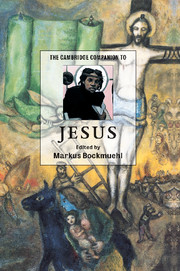4 - Message and miracles
from Part I - The Jesus of history
Published online by Cambridge University Press: 28 May 2006
Summary
This chapter follows up the overview of the previous chapter by focusing on the message and miracles of Jesus. These themes may seem to be an awkward pairing: whereas the teaching of Jesus is generally considered to be readily accessible and of continuing relevance, the miracles raise problems for the modern mind. For Jesus himself, however, message and miracles were interrelated, as they were for his opponents.
When the imprisoned John the Baptist sent his disciples to ask Jesus about his role and his intention, Jesus told them to tell John what they had heard and what they had seen, and then elaborated by couching his reply with phrases taken from Isaiah. This key passage (to which we shall return) links together the message and miracles of Jesus:
The blind receive their sight, the lame walk, the lepers are cleansed, the deaf hear, the dead are raised, and the poor have good news brought to them. (Matt 11.4–5 par. Luke 7.22–23; cf. Luke 4.16–18)
- Type
- Chapter
- Information
- The Cambridge Companion to Jesus , pp. 56 - 71Publisher: Cambridge University PressPrint publication year: 2001
- 2
- Cited by

